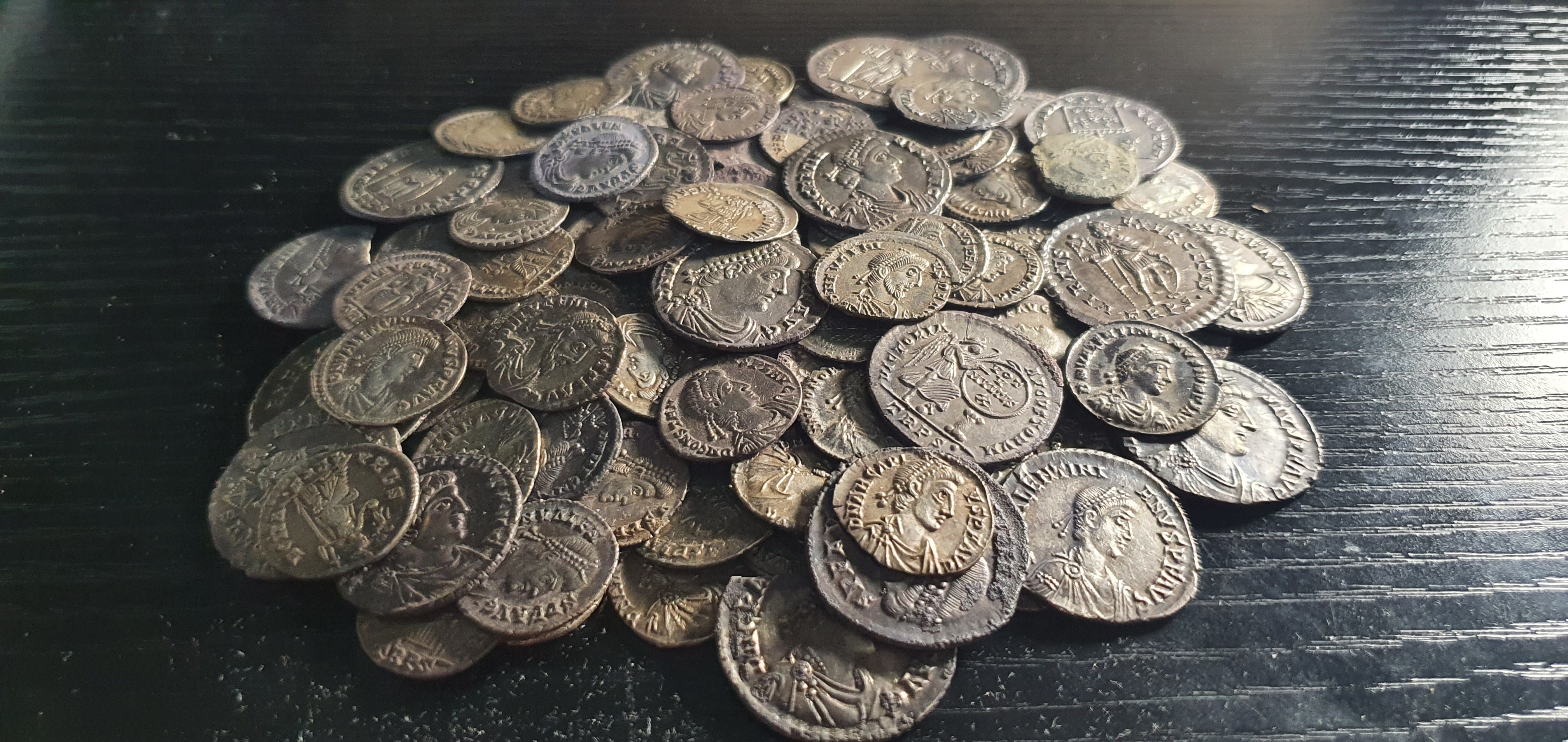Detectorist friends find hoard of 161 Roman coins beneath their campsite
Mick Rae, Robert Abbott and Dave Allen were on a weekend camping trip in Wiltshire when they discovered the treasure.

Your support helps us to tell the story
From reproductive rights to climate change to Big Tech, The Independent is on the ground when the story is developing. Whether it's investigating the financials of Elon Musk's pro-Trump PAC or producing our latest documentary, 'The A Word', which shines a light on the American women fighting for reproductive rights, we know how important it is to parse out the facts from the messaging.
At such a critical moment in US history, we need reporters on the ground. Your donation allows us to keep sending journalists to speak to both sides of the story.
The Independent is trusted by Americans across the entire political spectrum. And unlike many other quality news outlets, we choose not to lock Americans out of our reporting and analysis with paywalls. We believe quality journalism should be available to everyone, paid for by those who can afford it.
Your support makes all the difference.Three metal detectorist friends have discovered a Roman hoard worth tens of thousands of pounds while spending the weekend camping in Wiltshire.
The group were staying in a field near the ancient village of Pewsey when they found the treasure trove just six paces from where they had pitched their tent.
Computer shop owner, Robert Abbott, from Essex, switched on his metal detector after having breakfast one morning and very quickly came across something.
While at first the 53-year-old uncovered only discarded metal tent pegs, he dug a little deeper and hidden below was a valuable silver Roman siliqua coin said to be about 1,600 years old.
His friends: herds manager, Mick Rae, 63; and carpenter, David Allen, 59, sprang into action and helped dig up dozens more of the coins.
By the end of the weekend, they had found 161 coins, including silver siliqua and miliarense coins dating from AD 340–402.
With so many coins, and no where else to keep them, they resorted to storing them in their camping washing-up bowl as they did not have anything else to store them in.
Mr Abbott said: “Having finished breakfast first, I turned on my machine – a Minelab Equinox 800 – and having walked around six paces from the tent, I found several tent pegs and, just under the surface, a late Roman silver siliqua in pristine condition.
“A few moments later beside it, I found another one.
“Ironically, we had been camping there two weeks previous for a week-long detecting outing. What we hadn’t realised is we’d actually camped right on top of the area where the coins were found.”
The coins are believed to have been buried during the last years of the Roman Empire by people looking to protect their valuables from Saxon raids.
Discovered in September 2020, after the first Covid-19 lockdown had ended, the coins are now set to go under the hammer at auctioneers Noonans salesroom in Mayfair, London, on May 17.
The Vale of Pewsey hoard of 142 coins is expected to sell for between £30,000 and £40,000.
Nigel Mills, from Noonans, said: “Virtually all of the coins are in mint condition and have not even needed to be cleaned since their discovery.
“The hoard was buried at a time when Roman rule in Britain under the Emperor Honorius was no longer viable with the army being recalled to protect other provinces.
“In AD 410 Britain was told to protect itself by Honorius.
“As a result, Britain has become a treasure island of late 4th century and early 5th century gold and silver Roman coin and jewellery hoards as the local population buried their valuables and then fell victim to Saxon raids.”
The friends are keeping some of the coins that they found and the British Museum has studied the coins and is adding two to their collection.
Other detectorist finds in recent years have included the Thetford and Hoxne hoards.